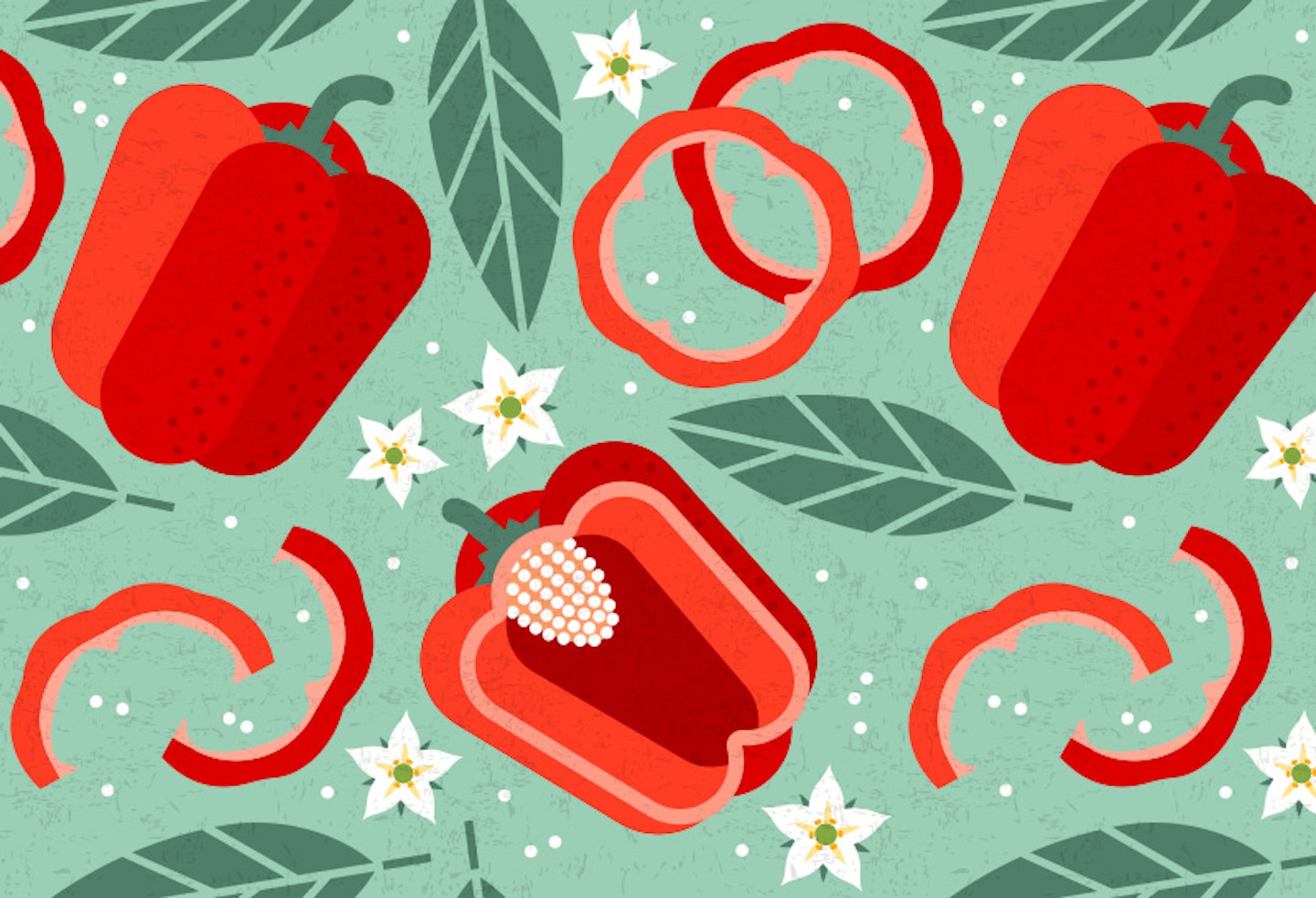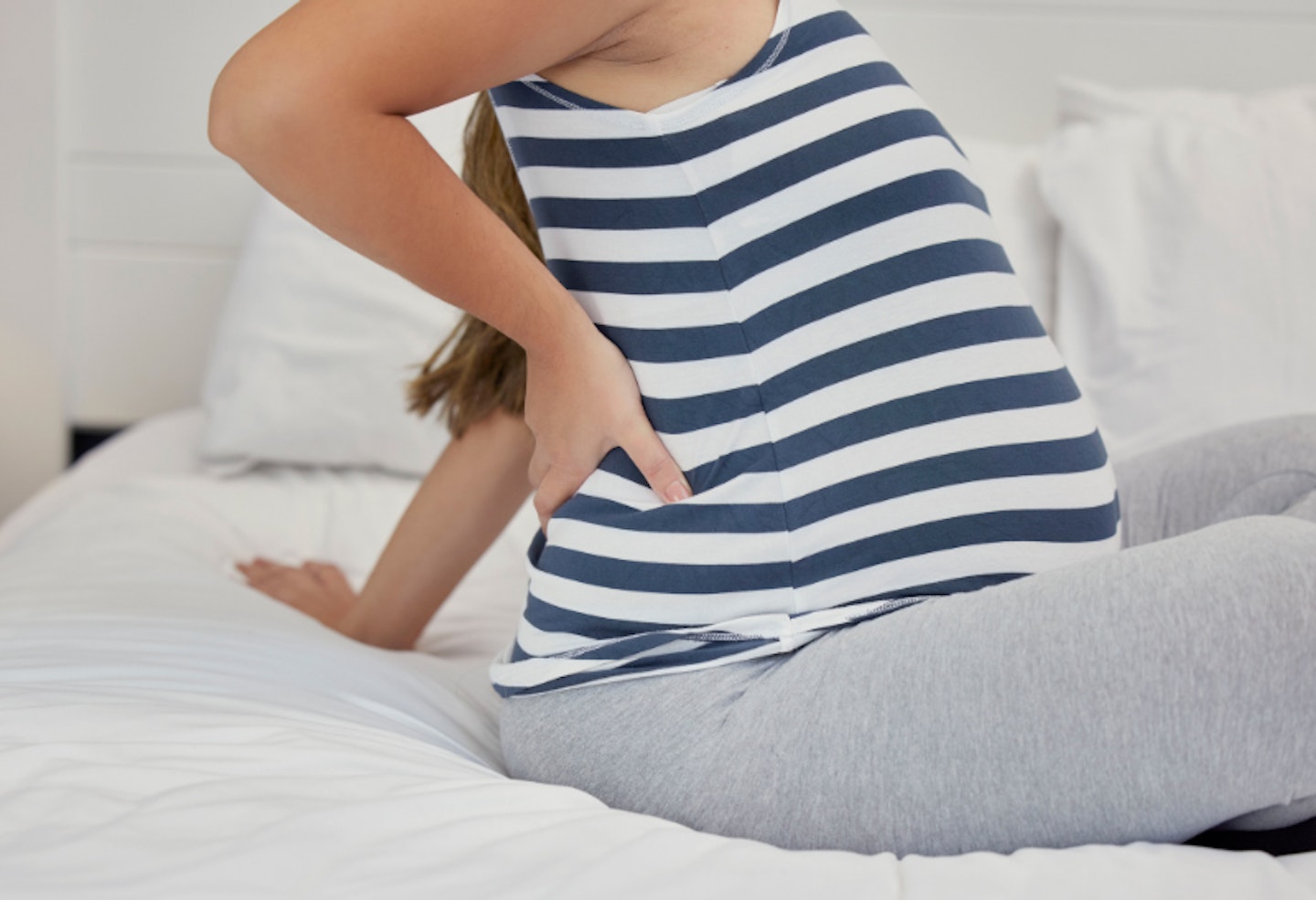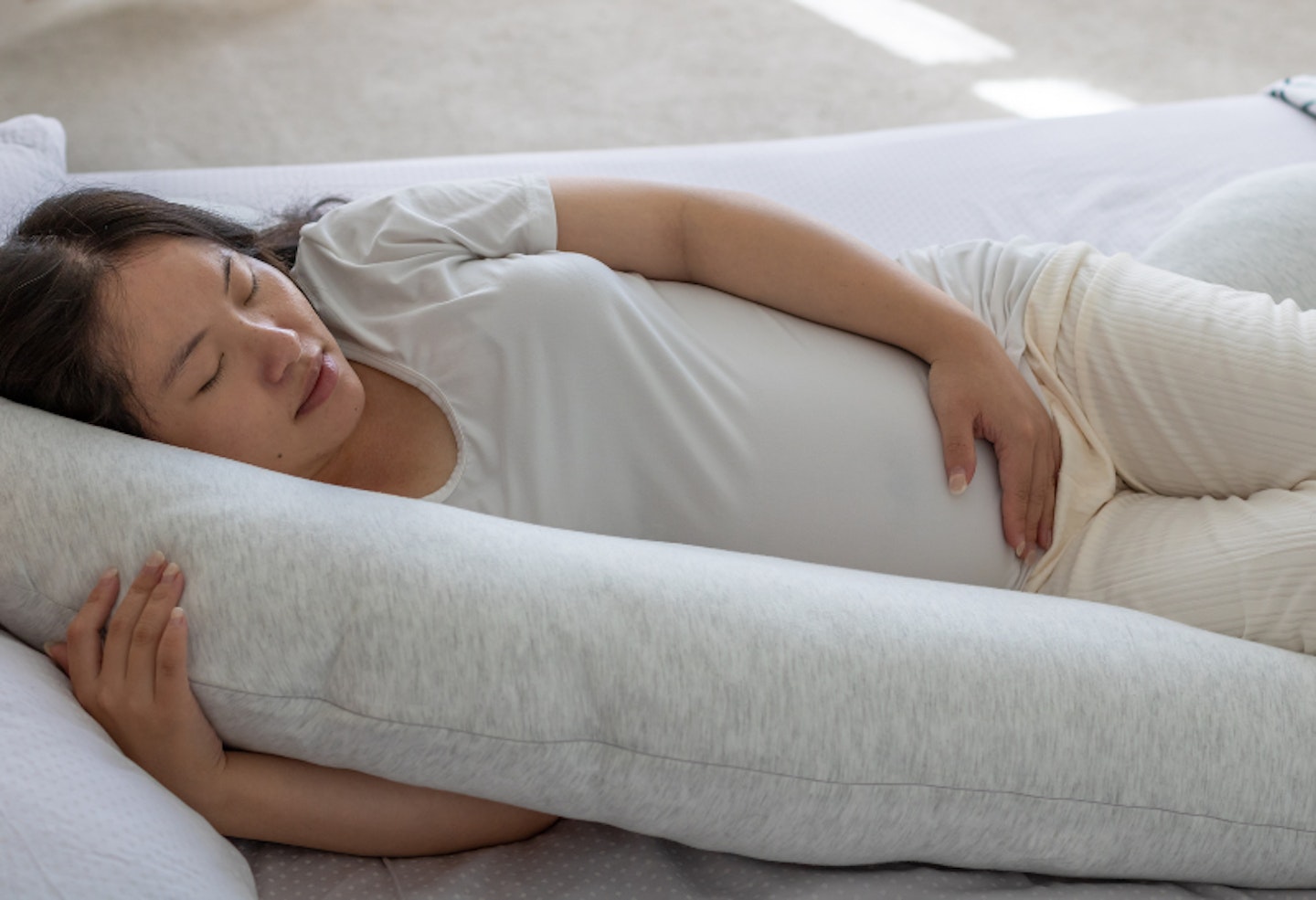
Medically Reviewed by: Lesley Gilchrist
Article medically reviewed by midwife Lesley Gilchrist, BSc (Hons) Midwifery Studies, MSc Clinical Research Methods, who is the CEO and founder of My Expert Midwife and has been a midwife since 2003, working in some of the largest teaching hospitals in Europe.
At eighteen weeks pregnant your little one is now big enough that in the next few weeks, you may begin to feel baby move when they are twisting, rolling, kicking and punching. You are officially in your second trimester and if you've felt sick, tired and generally exhausted in your first trimester, things may hopefully start to get better from here. You 18 week bump is growing and you may have noticed your clothes feeling a little snug to accommodate your bump a little more and you may find hiding it a little tricky. You'll be speaking to your midwife more now you're 18 weeks pregnant and you're only two weeks away from your 20 week scan (also called an anomaly scan) which is a huge milestone in your pregnancy journey.
Here’s what your baby and your body are doing at 18 weeks pregnant and any symptoms you can expect this week.
How many months is 18 weeks pregnant?
At 18 weeks pregnant, you are in month 4 of your pregnancy, which means you are nearly halfway there.
How big is my baby at 18 weeks pregnant?
Your baby is about five and a half inches long this week and weighs somewhere between five to six and a half ounces. They are about the size of a red pepper.

What’s my baby doing at 18 weeks pregnant?
Your baby's movements at 18 weeks
This week your baby will learn how to yawn and hiccup – something you might start feeling soon! Or something you might be able to see at your anomaly scan in a couple of weeks. They are also busy experimenting with movement and they are kicking, rolling and punching, which soon, you should be able to feel.
Your baby's body at 18 weeks pregnant
Your baby’s nervous system is maturing rapidly and her nerves are now forming complex connections, plus myelin has started to develop. This is a protective insulation which will continue to grow until little one's first birthday. Your baby’s hearing is now getting more acute, which means now is a good time to start talking and signing to your growing bump because baby will start to hear in the womb. You might even want to play them some music!
When you are 20 weeks pregnant, you will attend your anomaly scan and might be able to find out if you are having a girl or a boy. However, by 18 weeks pregnant, the fallopian tubes and uterus are formed if you are having a girl and baby's genitals should already be visible if you were to have a scan this week.
You baby also has a fully working digestive system and their body is covered in lanugo, a fine hair, which protects the skin on their shoulders, back and ears in the womb.

Your pregnancy symptoms at 18 weeks pregnant
Edema
A fancy word to describe the swollen feet and ankles that often happens during pregnancy. If your feet and legs look like you’ve just got off a long-haul flight, do not panic, this is simply a sign your body tissues are accumulating fluid to support your baby. You can reduce the water tension in your feet and lower legs by avoiding standing or sitting for too long, and keeping your feet up whenever you can.
Insomnia
Last week we mentioned weird dreams and now you might struggle to sleep at all! Your mind is preoccupied with everything going on in your life, and you are probably getting more uncomfortable due to the other unwelcome side effects and a growing bump. This can all really affect your sleep causing insomnia during pregnancy. Try a relaxing night-time tea and make sure you have a comfortable pillow to sleep with.
Indigestion and heartburn
This is surely the most persistent and irritating symptom of pregnancy! It has appeared nearly every single week! As those hormones loosen the muscle connecting your stomach to your windpipe, acid can regurgitate up, causing a burning sensation in your chest. Unfortunately, heartburn will continue to get worse as your bump gets bigger. However, midwife Lesley, says, "the symptoms can be managed by simple lifestyle changes or medication, so if you are struggling, speak with your doctor or midwife."
Baby movement
Finally a positive symptom! A very exciting feeling, if you’ve experienced weird rumblings in your tummy the past few days, it’s not something you’ve eaten, but your baby moving around the womb. Don’t worry if you haven’t felt anything yet, it might take a few weeks for you to start feeling those first kicks.
Bleeding gums
Around half of mums-to-be will experience bleeding gums during pregnancy thanks to those pesky hormones. It’s nothing to worry about, but it’s really important to look after your teeth and gums during pregnancy.
Backache
The movement of your uterus is also putting pressure on your lower back, which means back pain is a common side effect from now on. Your growth of your uterus will be shifting your centre of gravity, and you are likely thrusting out your belly, causing strain on your back, which is also not helped by the pregnancy hormone relaxin.
Leg cramps
If you’re finding yourself being woken up at night with shooting pains in your claves, rest assured this is also normal. Experts aren’t sure what causes this, but recommend trying calf stretches before bed to alleviate the symptoms. Leg cramps can also be a sign of dehydration - so drink up!
Your body at 18 weeks pregnant
You 18 weeks baby bump
By now your uterus has moved up into position and has grown to about the size of a cantaloupe melon. In fact, you’ll probably be able to feel it about one and a half inches below your belly button.
Loose joints
Last week we spoke about the pregnancy hormone relaxin, which is continuing to work around your body this week, relaxing all your ligaments and loosening your joints. Reduce those aches and pains by sitting down with your feet up, or taking a long warm bath. You might feel round ligament pain too, which is like pregnancy growing pains, and can feel like sharp pains at the side of your abdomen.
Linea nigra
If it hasn't appeared already, this week you might notice the linea nigra. The NHS suggests it can appear around week 18 of pregnancy, or in the 5th month of pregnancy. It is a dark line that usually starts from the belly button and goes all the way down to the groin, and it is caused by the pregnancy hormone melanin. It is not at all harmful and should fade after birth.
Looking after yourself at 18 weeks pregnant
Increase your fibre intake
Pregnancy can cause constipation so it is a good idea to ensure you increase your fibre uptake to keep things regular. However, too much fibre might make you feel bloated.
Sleep on your side
The NHS suggests that the safest position to sleep in is on your side. This is because as your bump grows the weight of it can put pressure on the IVC, the large vein which carries blood from the lower body to the heart, which can restrict blood flow to your baby, or cause low blood pressure. It is advised that from 28 weeks pregnant you sleep on your left side, but as your bump grows in the mid to late second trimester, try to avoid sleeping on your back.

What to do at 18 weeks pregnant
Get a pregnancy pillow
With increased chance of insomnia, a growing bump and sleeping on your side, a good pregnancy pillow might provide a bit of comfort. It will support your bump, help you find a comfortable position and might help with sleep. Plus some double as nursing pillows after baby is born.
Go shopping for maternity clothes
At 18 weeks pregnant you might start to really notice your baby bump, or your clothes might be getting a bit tight. There are great maternity clothes for all seasons and occasions so treat your self to maternity clothes for summer if it's hot, or perhaps just a comfortable pair of maternity leggings, which always come in useful.
Maternity Exemption Certificate
Remember you can get free prescriptions and dentist appointments when pregnant, so if you haven't got it already, make sure you have your MatEx certificate card (maternity exemption certificate) to help you save money.
18 weeks pregnant FAQs
Can I expect to feel movement at 18 weeks?
Feeling your baby move is one of the most special parts of pregnancy, yet it can raise a lot of questions – is my baby moving too much or not enough? There’s a wide range in what is normal, and movement varies from baby to baby. Most women will feel the first movements, known as quickening, between 14 weeks pregnant and 26 weeks pregnant.
What if I can’t feel movement at 18 weeks?
Do not panic, every baby is different and if you don’t feel any movement this week, it is not a sign that anything is wrong. The position of the placenta can also affect how much movement you feel at this stage – if it’s facing the front (medically referred to as an anterior placenta) these early movements can be muffled and you might have to wait a few more weeks.
Is it safe to do exercise at 18 weeks pregnant?
Yes! In fact, it is actively encouraged that you do some sort of light exercise throughout your pregnancy if you feel well enough. If you have a exercise routine you stick to, make sure you speak to your doctor or midwife before starting when pregnant. Also, if you're planning to start a brand new exercise routine, always discuss what is best for your with a professional and avoid any potentially risky activities.
Can I travel at 18 weeks pregnant?
Yes, if you're safe and well and having an uncomplicated pregnancy, you are safe to travel at 18 weeks pregnant. However, if you're travelling on a long haul flight it is best to have a chat with your midwife or doctor as it is important to keep walking and moving even whilst still in the air to lower the risk of DVT (deep vein thrombosis). Most airlines allow pregnant women to fly up to 36 weeks.
About the expert
Lesley Gilchrist, BSc (Hons) Midwifery Studies, MSc Clinical Research Methods, is the CEO and founder of 'My Expert Midwife' and has been a midwife since 2003, working in some of the largest teaching hospitals in Europe. Through this time, Lesley has gained invaluable experience and insight into maternity care, labour and birth.
Maria Martin is Digital Group Editor for Yours.co.uk and Motherandbaby.com. She is a mum-of-two with a passion for helping women from all walks of life – from supporting breastfeeding mothers with expert advice to encouraging conversations about mental health. In her professional role, she has over 10 years' experience in the digital world, including editing articles, focussing on SEO, social media engagement, picture researching and video editing.
